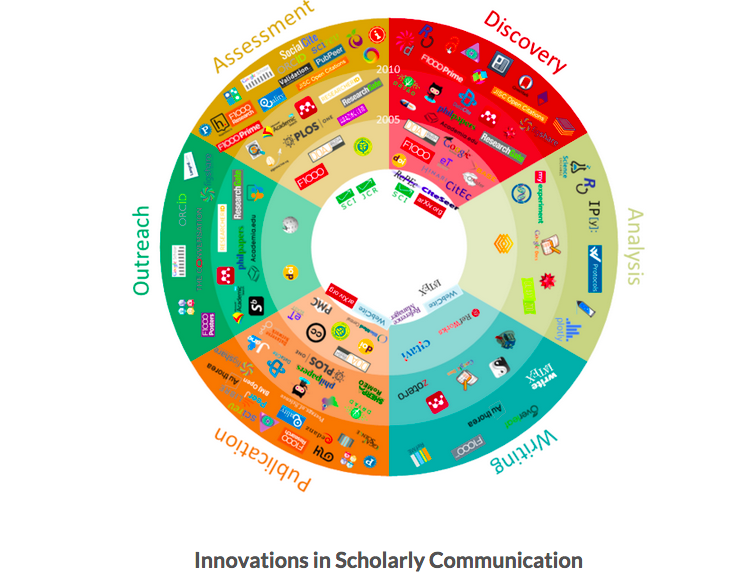
Enhancing Scholarly Communication
Enhancing Scholarly Communication https://opusproject.eu/wp-content/uploads/2024/02/img_oscwebpage_innovationsscholcom_20150617.png 736 574 Open and Universal Science (OPUS) Project Open and Universal Science (OPUS) Project https://opusproject.eu/wp-content/uploads/2024/02/img_oscwebpage_innovationsscholcom_20150617.pngIn the area of academia, communication serves as the lifeblood that sustains its growth and evolution. Imagine a world where researchers, scholars, and students operate in isolated bubbles, their knowledge confined within the walls of their institutions, inaccessible to others. Such a scenario stifles progress and innovation, hindering the very essence of academic pursuit.
Fortunately, the landscape is changing. The advent of digital technologies and the proliferation of online platforms have revolutionized scholarly communication, fostering connectivity and collaboration on an unprecedented scale. This paradigm shift is not merely about embracing new tools; it’s about redefining how knowledge is disseminated, shared, and engaged with across disciplines and borders.
At the heart of this transformation lies the concept of scholarly communication enhancement—a multifaceted endeavor aimed at breaking down barriers, facilitating interdisciplinary dialogue, and democratizing access to knowledge. Let’s delve deeper into how this enhancement is reshaping the academic ecosystem:
- Open Access Initiatives: Traditionally, access to scholarly literature was often restricted by paywalls and subscription fees, limiting its reach to only those affiliated with well-endowed institutions. Open access initiatives challenge this status quo by making research outputs freely available to anyone with an internet connection. By removing financial barriers, open access not only promotes equitable access to knowledge but also enhances visibility and citation impact for researchers.
- Preprint Servers: In the age of rapid dissemination, waiting for months or even years for research findings to undergo peer review and publication in traditional journals can impede scientific progress. Preprint servers offer a solution by allowing researchers to share their findings publicly before formal peer review. This accelerates the pace of discovery, invites feedback from the global research community, and fosters collaboration.
- Data Sharing and Reproducibility: Transparency and reproducibility are fundamental tenets of robust scientific inquiry. Scholarly communication enhancement advocates for greater transparency by promoting data sharing practices and reproducibility standards. By making research data openly available and ensuring the reproducibility of findings, researchers can build upon existing knowledge with confidence, advancing the collective understanding of complex phenomena.
- Interdisciplinary Collaboration: Many of today’s most pressing challenges—from climate change to global health crises—are inherently interdisciplinary in nature. Scholarly communication enhancement encourages collaboration across disciplinary boundaries, facilitating the exchange of ideas, methodologies, and insights. By fostering interdisciplinary dialogue, researchers can approach complex problems from multiple perspectives, leading to more holistic and innovative solutions.
- Digital Tools and Platforms: The digital revolution has birthed a myriad of tools and platforms designed to enhance scholarly communication. From reference management software to collaborative writing platforms, these tools streamline the research process, promote collaboration, and amplify the impact of scholarly outputs. Embracing these digital innovations empowers researchers to work more efficiently and effectively in today’s interconnected world.
Scholarly communication enhancement is not just a buzzword; it’s a fundamental shift in how knowledge is created, shared, and utilized in the academic sphere. By embracing open access principles, leveraging digital technologies, and fostering interdisciplinary collaboration, we can build bridges that transcend disciplinary boundaries, democratize access to knowledge, and accelerate the pace of discovery. As we navigate the ever-evolving landscape of academia, let us continue to champion initiatives that enhance scholarly communication, paving the way for a more inclusive, collaborative, and impactful academic community.
Photo via University of Cambridge
- Posted In:
- Open Science News




